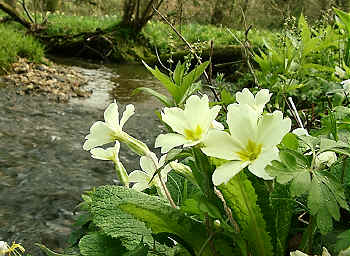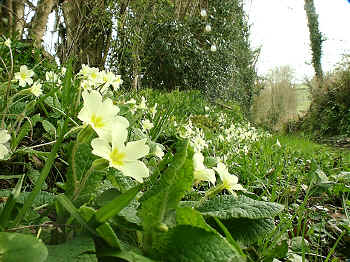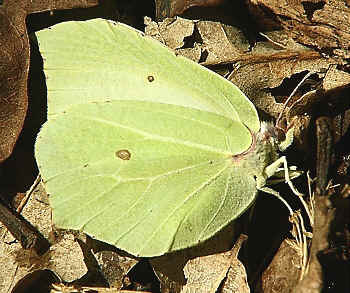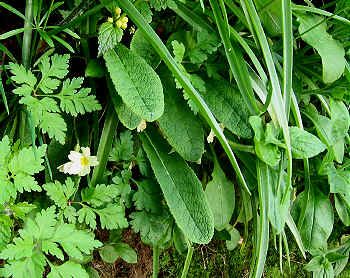
|
Primroses
are a very special feature of Devon. Their masses of creamy yellow flowers bloom
everywhere in the spring, from fields to hedgebanks and from seacliffs to churchyards.
They can be found throughout the Woodland Education Centre in Offwell, in virtually every
habitat. Primroses thrive in the mild, wet
climate of Devon. In other parts of England they are usually found only within the shelter
of damp woodlands. They rarely occur right out in the open as they often do in Devon,
because they cannot survive dry conditions. |
| It is because they are such a feature of Devon, that Primroses have their
own individual Species Action Plan within the Devon Biodiversity Action Plan (BAP). They
may not be threatened at present, but their continued success depends on them being valued
now. (More on Devon BAP here) |

|
Primroses are
one of the earliest spring flowers. They may be found flowering in warm sheltered nooks as
early as the end of January, although most flower from March to May. Because they flower so early in the year, they provide a
vital source of nectar at a time when there are few other flowers around for insects to
feed on. |

|
Insects
such as adult Brimstone butterflies (left), which have hibernated over the winter will often emerge on warmer spring
days. If they are unable to find nectar to feed on they will quickly die.
Primroses are one of their most important sources of
food at this time. |
 |
Primroses are
a low growing plant, with rosettes of leaves, crowned by flowers, at the level of the soil
surface. Because they are close to the
ground, they are rapidly overshadowed by other taller plants (left), which
grow quickly as the weather warms up in late spring/early summer.
By flowering so early in the year, Primroses are
able to complete their life cycle while light levels are still high and before they become
completely covered and shaded out by other plants. |
Primroses are unusual in having two
almost identical, yet slightly different types of flowers.
Continue and find out more here
|